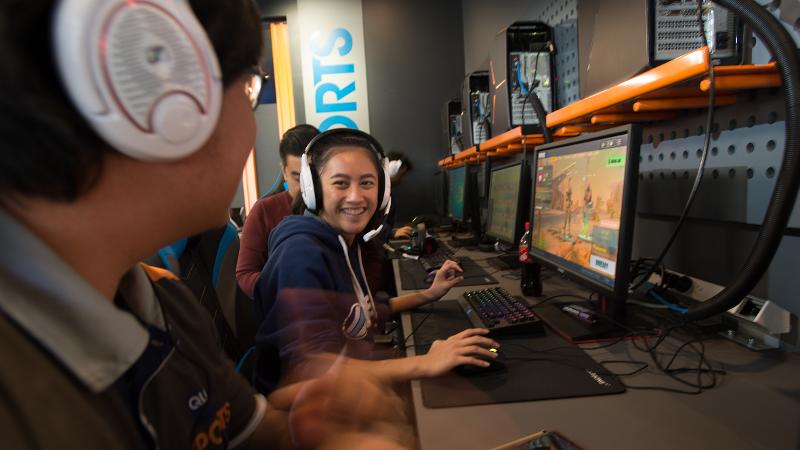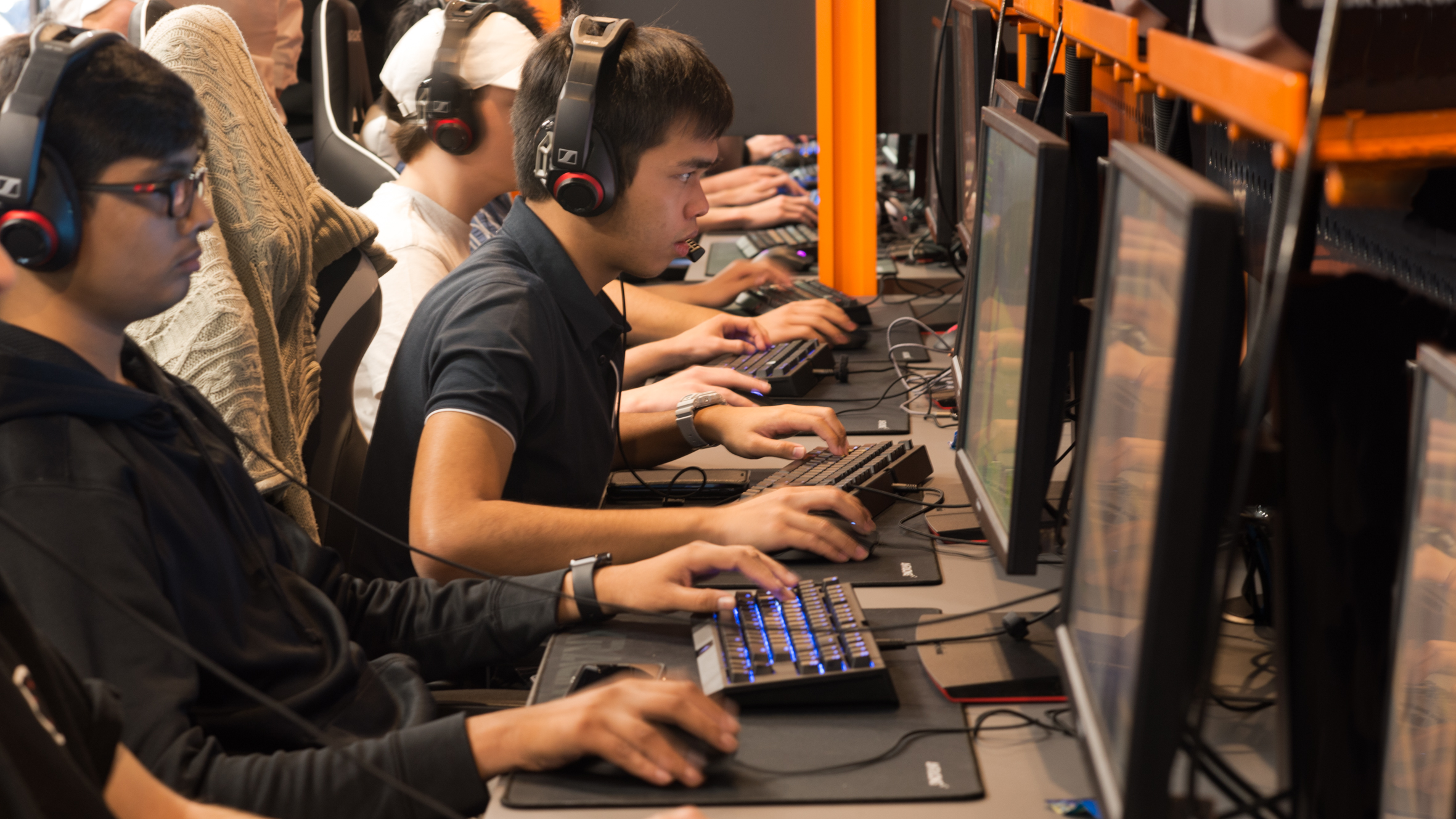
Twenty students will be battling it out over two days at QUT this weekend seeking one of five $10,000 scholarships for exceptional gamers and a position on the five-person QUT Tigers team competing in the League of Legends Oceanic Challenger Series (OCS).
The gamers, who include current QUT students and students planning to start at QUT this year, are competing for the eSports scholarships that are a first for a university in Australia. The scholarships are offered under the QUT Vice-Chancellor’s Scholarships program in the elite athlete category.
Members of the QUT Tigers team will train under the guidance of coach Simon Earl, who previously coached the Dire Cubs in the OCS, and as with traditional elite athletes will work with a team of staff to deliver a coaching program that will include physical training, sports psychology and dietary guidelines.
The QUT Tigers last year became the first uni team to compete in the OCS, which is a feeder to the Oceanic Pro League.
QUT eSports coordinator Dylan Poulus said while the research to scientifically prove the benefits of elite gamers following the training regimes of other elite athletes was still ongoing, there was anecdotal evidence showing the success of the strategy.
“In the same way that traditional sports athletes are benefiting by having a psychologist, dietician and strength and conditioning coach, we’ve seen some of the top-level eSports teams benefiting,” Mr Poulus said.
“With the rise of eSports, a billion-dollar industry with millions of viewers and millions of dollars in prize pools, this is about treating it at a professional level.
“QUT wants to be the first mover in that space. If there is going to be a professional league at the top, then there’s going to need to be a grassroots pathway in your traditional education bodies.
“We want to take the lead and be the first to build that.”

Emily Rosemond, Coordinator of QUT Sport and its Elite Athlete Program, said taking a high-performance approach to training the QUT Tigers was part of the university’s duty of care to its students and would enable the students to maximise their potential in both their academic and e-sporting career.
QUT eSports convener Nick Lynch said in the early days of eSports there were some athletes who fitted the stereotype of a gamer as someone who spent too many hours in dark rooms playing on a computer while neglecting other physical activities.
But that strategy resulted in too many eSports athletes burning out and retiring from competition at an early age.
“Part of the reason why we’reincluding all of the extra coaching stuff – the dietician, the sports psychologist, the active part of being required to go to the gym – is because of those stereotypes,” Mr Lynch said.
“The university wants the students to have the best opportunity for them both right now and for the future,” Mr Lynch said.
“We want to show that we are taking this as seriously as a traditional sporting team. If our traditional sporting athletes are physically fit and mentally fit, then that should be exactly the same for our eSports athletes.
“All of the top teams in America, the teams that are some of the best in the world, they are required to go to the gym, they have an in-house chef that makes their breakfast, lunch and dinner and all of their diets are regulated.
“And they have pulled ahead of the rest of the world in both their performance and general well-being.”
The two-day event is being held at the QUT eSports Arena which opened in July on the Gardens Points campus.
QUT has Australia’s first official university-endorsed eSports program, and the QUT eSports Arena is the first dedicated on-campus gaming arena.
Media contact:
Rod Chester, QUT Media, 07 3138 9449, rod.chester@qut.edu.au
After hours: Rose Trapnell, 0407 585 901, media@qut.edu.au




